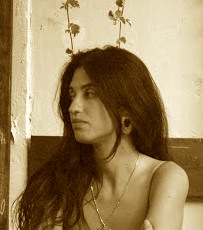|
Master's degree in Mathematics
|
Advanced course in foundations of mathematics (2025/2026)
|
6
|
|
3
|
|
|
Bachelor's degree in Computer Science
|
Algebra and Foundations of Mathematics [Matricole dispari] (2025/2026)
|
6
|

|
6
|
|
|
Master's degree in Artificial intelligence
|
Logic in AI (2025/2026)
|
6
|

|
6
|
|
|
Master's degree in Mathematics
Course partially running
|
Advanced course in foundations of mathematics (2024/2025)
|
6
|

|
3
|
|
|
Bachelor's degree in Computer Science
Course partially running
|
Algebra and Foundations of Mathematics [Matricole dispari] (2024/2025)
|
6
|

|
6
|
|
|
Master's degree in Artificial intelligence
Course partially running
|
Logic in AI (2024/2025)
|
6
|

|
6
|
|
|
Master's degree in Mathematics
Course partially running
|
Advanced course in foundations of mathematics (2023/2024)
|
6
|

|
2
|
|
|
PhD in Computer Science
|
Foundations of quantum languages (2023/2024)
|
3
|

|
3
|
|
|
Bachelor's degree in Computer Science
Course partially running
|
Logic [Matricole dispari] (2023/2024)
|
6
|

|
6
|
|
|
Master's degree in Artificial intelligence
Course partially running
|
Logic in AI (2023/2024)
|
6
|

|
6
|
|
|
Master's degree in Mathematics
Course partially running
|
Advanced course in foundations of mathematics (2022/2023)
|
6
|

|
2
|
|
|
Bachelor's degree in Computer Science
Course partially running
|
Logic [Matricole dispari] (2022/2023)
|
6
|

|
6
|
|
|
Bachelor's degree in Biotechnology
Course partially running
|
Mathematics and statistics
(2022/2023)
|
12
|

|
6
|
(Matematica Mod. 1)
|
|
Bachelor's degree in Computer Science
Course partially running
|
Linear Algebra (2021/2022)
|
6
|

|
1
|
|
|
Master's degree in Mathematics
Course partially running
|
Mathematical logic (2021/2022)
|
6
|

|
6
|
|
|
Bachelor's degree in Biotechnology
Course partially running
|
Mathematics and statistics
(2021/2022)
|
12
|

|
6
|
(Matematica Mod. 1)
|
|
Bachelor’s degree in Communication Studies
Course partially running
|
Documental Information Technology (i) (2020/2021)
|
6
|

|
6
|
|
|
Master’s degree in Publishing and Journalism
Course partially running
|
Informatics and multimedia production (m) (2020/2021)
|
12
|

|
4
|
II MODULO PARTE (P)
|
|
Bachelor’s degree in Communication Studies
Course partially running
|
Documental Information Technology (i) (2019/2020)
|
6
|

|
6
|
|
|
Master’s degree in Publishing and Journalism
Course partially running
|
Informatics and multimedia production (m) (2019/2020)
|
12
|

|
4
|
II MODULO PARTE (P)
|
|
Bachelor’s degree in Communication Studies
Course partially running
|
Documental Information Technology (i) (2018/2019)
|
6
|
|
6
|
|
|
Master’s degree in Publishing and Journalism
Course partially running
|
Informatics and multimedia production (m) (2018/2019)
|
12
|

|
4
|
II MODULO PARTE (P)
|
|
Bachelor’s degree in Communication Studies
Course partially running
|
Documental Information Technology (i) (2017/2018)
|
6
|
|
6
|
|
|
Bachelor’s degree in Communication Studies
Course partially running
|
Documental Information Technology (i) (2016/2017)
|
6
|
|
6
|
|
|
Bachelor’s degree in Communication Studies
Course partially running
|
Documental Information Technology (i) (2015/2016)
|
6
|
|
6
|
|
|
Bachelor’s degree in Communication Studies
Course partially running
|
Documental Information Technology (i) (2014/2015)
|
6
|
|
6
|
|
|
TFA A042 Computer science (secondary school)
|
Sistemi informativi e sicurezza (2014/2015)
|
6
|
|
2
|
FONDAMENTI
|
|
Bachelor’s degree in Communication Studies
Course partially running
|
Documental Information Technology (i) (2013/2014)
|
6
|
|
6
|
|
|
Master's degree in Computer Science and Engineering
Course partially running
|
Algorithms (2010/2011)
|
12
|
|
6
|
COMPLESSITÀ
|
|
6
|
ALGORITMI
|
|
Bachelor’s degree in Communication Studies
Course partially running
|
Basic Information Technology SC (i) (2010/2011)
|
6
|
|
6
|
|
|
Bachelor’s degree in Communication Studies
Course partially running
|
Documental Information Technology (i) (2010/2011)
|
6
|
|
6
|
|
|
Bachelor’s degree in Communication Studies
Course partially running
|
Basic Information Technology SC (i) (2009/2010)
|
6
|
|
6
|
|
|
Bachelor's degree in Viticultural and Oenological Science and Technology
Course partially running
|
Computer science and statistics (2009/2010)
|
6
|
|
3
|
INFORMATICA
|
|
Degree in Communication Science: publishing and journalism
|
Documental Information Technology (p) (2009/2010)
|
6
|
|
6
|
|








 zorzi
zorzi univr
univr

